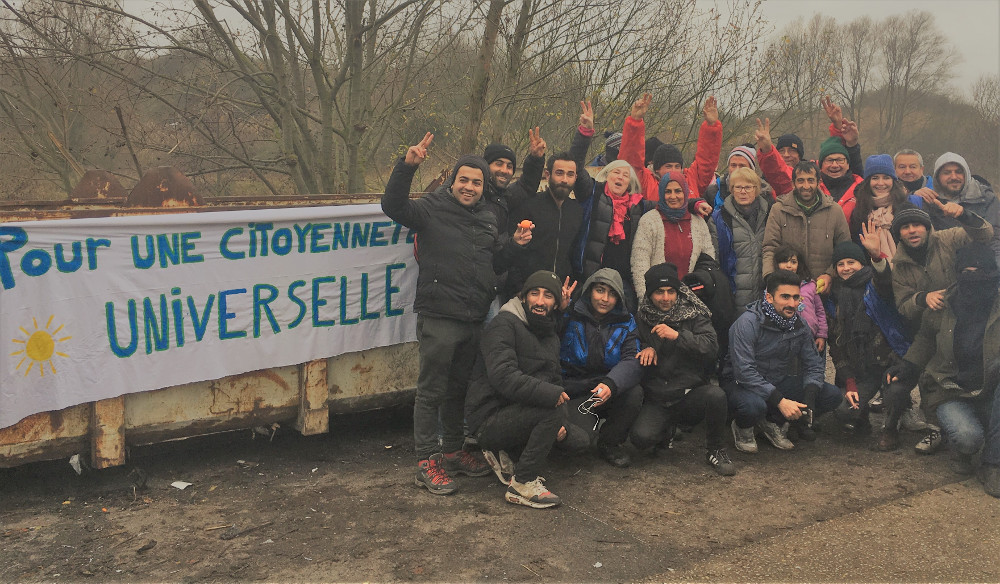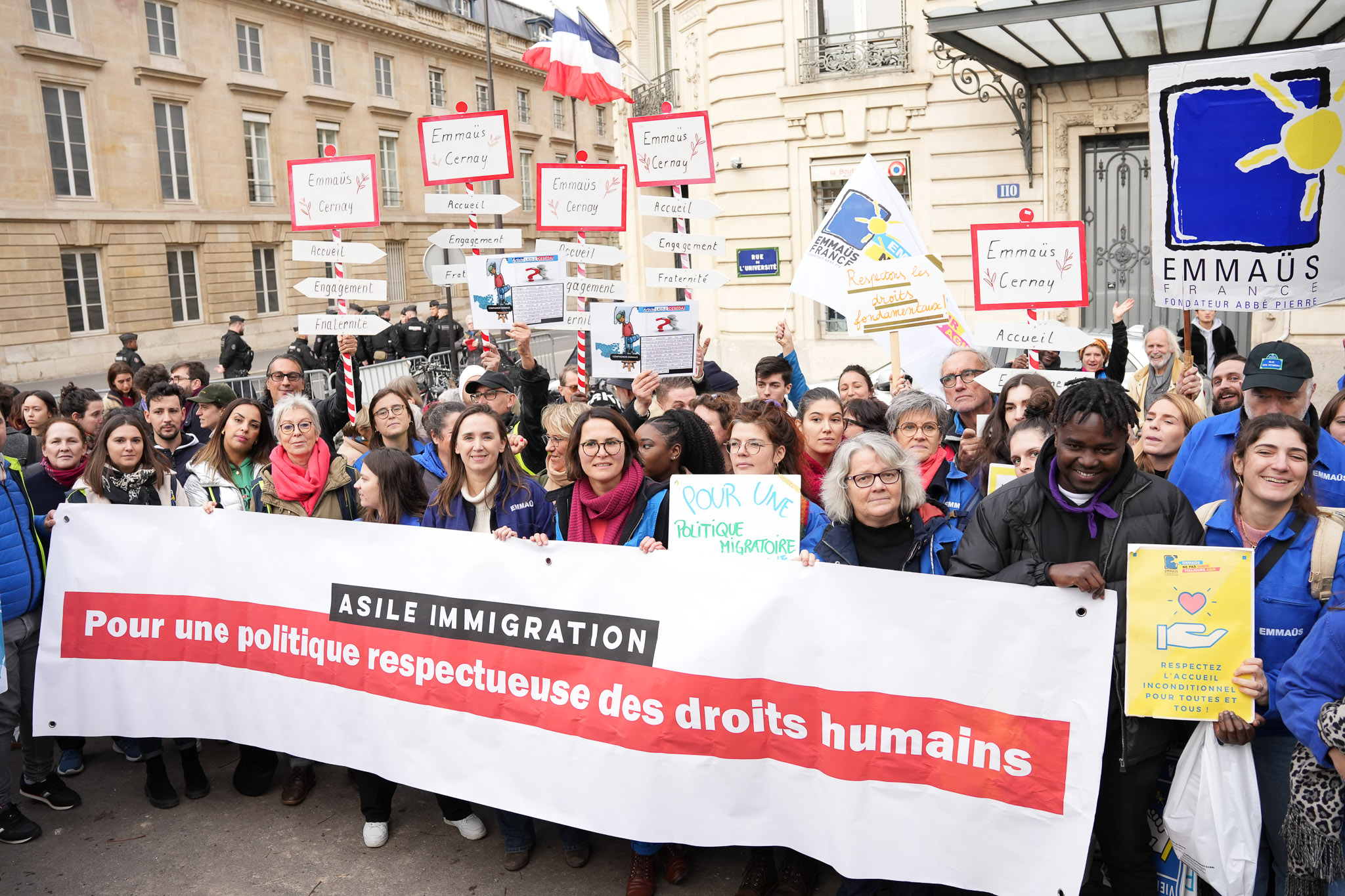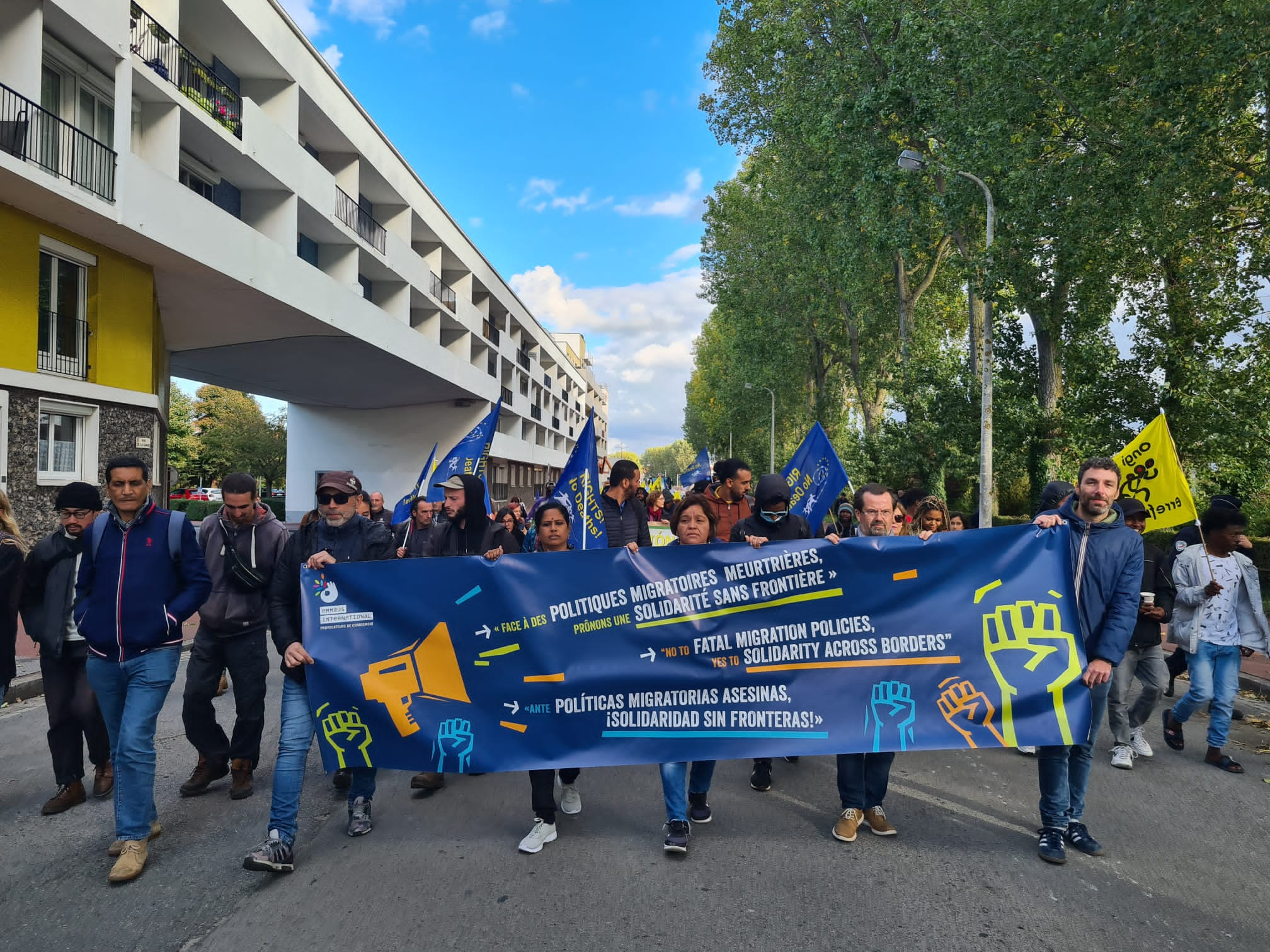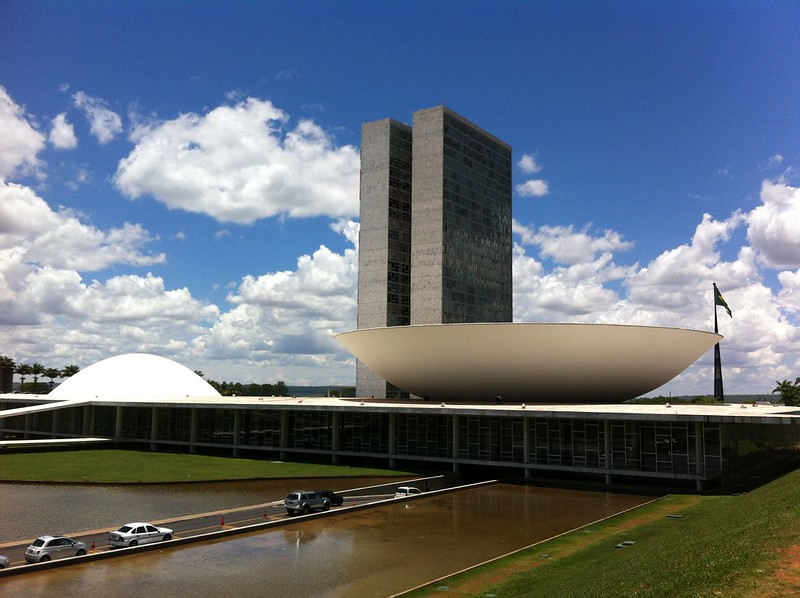Unconditional Welcome for Universal Citizenship

On 18 December, International Migrants Day, Emmaus International is calling for mobilisation for ‘universal citizenship’. Committed to its tradition of providing an unconditional welcome, the Emmaus movement is calling for mobilisation against a backdrop of anti-migrant policies which are creating more victims with each passing day.
Repressive, Security-Focused Policies which Create Exclusion
Article 13 of the Universal Declaration of Human Rights – one of the reference documents used to help draft the Universal Manifesto of the Emmaus movement – recognises that “everyone has the right to freedom of movement and residence within the borders of each state” as well as to “leave any country, including his own, and to return to his country.” Yet our societies’ public policies aimed at controlling, repressing, criminalising and deporting migrant peoples are growing in strength and number.
Freedom of movement is currently only enjoyed by merchandise, capital and a minority of privileged individuals. Millions of citizens are denied a decent life and are forced to migrate due to inequalities, the grabbing of wealth by a minority, wars/conflicts caused by desires for wealth and power and because of the disastrous environmental impacts of our models of production and consumption.On the Mediterranean coast, at the United States’ anti-migrant wall and in the Alps, thousands of people die every year trying to cross a border despite the responsibility of states to guarantee access for all to this right under Article 13.
Deconstructing Prejudices
The discrimination and persecution that migrants face is getting worse and is rooted in certain prejudices that Emmaus International is helping to deconstruct.
Emmaus defends the idea that migrants are not a burden for the host countries but rather an asset. If migrants are well integrated and allowed to work then they can pay for their own housing, consume in their host country, pay tax and contribute towards the social protection system. Such a system is the polar opposite of a security-based approach where a huge amount of public money is spent on trying to stop migrants entering the country and on deporting them if they do make it, not to mention the administrative costs of the processes of sorting the ‘good’ migrants from the ‘bad’.
Emmaus reminds people of their duty to remember their history – successive waves of immigration have helped build up the national identities and national treasuries of states across the globe.
Emmaus International also fights on a daily basis against prejudice, racism and xenophobia. Migrants have become the scapegoats of populist parties who lie about the figures in order to make electoral gains. Fighting against the fear of the ‘other’ and combatting discrimination is a moral and political imperative in order to restore both a widespread concept of humanity and duty towards others. Overcoming the fear would also help stop the rise of dangerous political forces who would employ even more deadly migration policies than those in place today.
Emmaus’ Tradition of Giving an Unconditional Welcome
Emmaus International, in line with our commitments, fights on a daily basis for the provision of an unconditional welcome. All people should be welcomed upon arrival in a new country, no matter their journey, origin, age or religion. Giving an unconditional welcome is a fundamental value of the Emmaus movement.
The 350 Emmaus groups across the globe offer an unconditional welcome and also provide support for the most excluded whether they be migrants, ‘legal immigrants’, undocumented persons, asylum seekers or rejected asylum seekers.
From Benin to France and from Peru to India, when faced with arbitrary public policies which foster exclusion and make solidarity a crime the Emmaus communities open their doors to everyone and they promote the skills of their members in order to find them work. Thus the members of the Emmaus groups become active contributors to the life of the community and help create an environment of respect and tolerance despite the very diverse backgrounds of the members.
Community living in the Emmaus groups encourages exchanges of know-how, of skills, of culture and of a feeling of belonging to a diverse world which fights against the rejection and stigmatisation of migrants.
Freedom of Movement and of Residence
Migrations are part of the history of our societies and now more than ever, given the level of globalisation in our modern world, there is no alternative to open borders. Refusing this clear fact and trying to contain desires/demands for migration is to create a political impasse. Focusing on closing borders and looking inward only serves to generate exclusion, violence and discrimination. Mobility is a fundamental right and migrations are an asset for host countries.
This is why Emmaus International fights for freedom of movement and of residence. If everyone had access to these rights there would be a positive type of globalisation, which respects common history and collective choices but which would also be a driver for exchange and dialogue. Emmaus International calls for a universal, interdependent world with a focus on solidarity, giving everyone hope to be able to build a dignified life for themselves.
Freedom of movement and of residence does not contradict the right to stay in one’s country of origin, as long as human rights and the necessary conditions for a dignified life can be enjoyed in the country. Ensuring freedom of movement and of residence would enable us to get rid of the inhumane conditions migrants have to face today.
Proposing an Alternative Direction For Migration Policy
Opposing the security-based approach taken by many governments, Emmaus International proposes an alternative direction for international migration policy, an alternative focused on access to fundamental rights.
The Organisation for Universal Citizenship (OUC), which counts Emmaus International amongst its founding members and was created in 2013, is working to create a new international political and democratic forum focusing on a minimum package of fundamental rights. The OUC wants to create a forum which would involve all of the stakeholders: states, local governments, civil society, migrants’ associations and diasporas.
Since the appeal the OUC launched at the World Social Forum on Migrations in July 2016 in Sao Paolo it has been working to develop a sustainable alliance between social movements and the local authorities, in France and elsewhere in Europe, with the aim of ensuring freedom of movement and a dignified welcome for migrants. The goal of the OUC’s work is also to defend the fundamental rights of migrants and to later ensure that they can become fully integrated in their local communities.
Mobilising for Universal Citizenship
Emmaus International is part of different campaigns and fora for mobilisation, calling for an alternative governance of migrations based around the concept of universal citizenship.
In France the Emmaus groups that mobilised for the ‘Article 13’ campaign clearly defended freedom of movement and of residence – as outlined in Article 13 of the Universal Declaration of Human Rights – with several symbolic initiatives. The ‘100 for 1’ initiative promotes solidarity between local families in order to provide housing for refugees. The momentum provided by the Etats Généraux des Migrations [Estates General on Migrations], launched by Emmaus International in France, helped to unite collectives, local organisations and national associations that offer solidarity to migrants, thus showing the public powers that an alternative policy for welcoming these people is indeed possible.
Across the globe the Emmaus movement is creating alliances in order to transform local citizens’ initiatives into a global pact on migrations which would respect human rights. Such a pact would be in contrast with the ‘Global Compact for Safe, Orderly and Regular Migration’ adopted by the UN on 10 December 2018 and which has a very security-based focus.
Emmaus International also regularly attends the World Social Forum on Migrations, including the most recent edition held from 2-4 November 2018 in Mexico, denouncing rights’ violations and the criminalisation of those who defend migrants, notably activists and journalists.
On 18 December, International Migrants Day, Emmaus International is calling for people to defend universal citizenship in order to put an end to deaths and anti-migrant policies, focusing instead on offering a future of peace for all.


